Chance Woods
During the summer of 2013, the combined support of the Mellon Foundation and the Centre for the Study of the Renaissance at the University of Warwick afforded me one of the greatest intellectual opportunities of my academic career. Over a period of four weeks, the University of Warwick served as an ideal scholarly community to undertake research on my project entitled 'Transcribing the Ineffable: Mysticism and Print Culture among English Catholics in Early Modern Europe'. Whereas the subjects of mysticism and print culture each have distinguished traditions of scholarship, the two fields have rarely been addressed within the ambit of a single study. The Warwick-Newberry initiative on ‘Reading Publics in the Renaissance’ offered the best scholarly resources available for advancing my understanding of this under-explored area of inquiry.
With the University of Warwick acting as my central research hub, I was able, within the scope of my time there, to access many other resources within the UK. In all, I visited research collections in Oxford, Cambridge, Durham, York, Brighton, and London. Much of my research depends heavily upon archival work, unearthing obscure manuscripts and rare printed editions of mystical literature circulated by English Catholics in the sixteenth and seventeenth centuries. From the moment I arrived at the Centre for the Study of the Renaissance, both the administrative staff and the academic faculty encouraged me to venture into the many great collections housed in parishes and university libraries across the country. In this respect, my position as Visiting Research Fellow allowed me to experience firsthand traces of an archival process that still reflect the religious and ideological conflicts of early modern England.
Within the context of early modernity, the archives of England were rich with literary artifacts of the medieval Catholic heritage, but many Protestants selectively utilized the nation’s libraries to substantiate their own current political concerns. In this respect, as Jennifer Summit has recently demonstrated, ‘the history of the English Middle Ages is really a history of the Renaissance, since post-Reformation collectors...selected, organized, preserved—and in so doing...remade—medieval books and documents in line with their own contemporary concerns and fantasies about the past’ (Memory’s Library: Medieval Books in Early Modern England [University of Chicago Press, 2008], 136). As Summit’s helpful formulation attests, the historiographical boundaries between the Middle Ages and the Renaissance are in fact far more complex than has heretofore been acknowledged by many researchers.
The ‘Reading Publics in the Renaissance’ initiative at the University of Warwick provided an outstanding context for addressing this pressing issue of historiography. Indeed, at the Centre various lectures and conversations with colleagues from other disciplines revealed to me that there were many variegated networks of readers across Europe during the early modern era. The circulation of manuscripts, the dissemination of printed sources, and the organization of reading communities during the Renaissance reveal to the modern researcher that many scholarly categories must be altered to accommodate sufficiently the scope of pan-European intellectual history.
The support of the Mellon Foundation and the Centre provided me with the means to take serious strides in completing research for the PhD. My dissertation, Ecstatic Readings: Literary Culture and the Construction of Mysticism in Early Modern England, presents an overview of how sixteenth- and seventeenth-century English Catholic writers utilized print to fashion a unique readership network that, paradoxically, centered on conveying ineffable theological notions through textual media. Specifically, I address how English Catholics, drawing inspiration from the new wave of continental devotional practices, orchestrated an idiosyncratic discourse regarding mysticism that was suited to their compromised status as recusants and non-conforming citizens. Whereas it is often acknowledged that the age of emerging print culture had direct correlations with many strands of the Protestant Reformation in England, scholarship has been slow to address how English Catholics appropriated the technology in transformative ways. One important aspect of this dynamic is its international scope: Catholic exiles covertly maintained elaborate print networks in London, but also in Paris, Antwerp, Douai, Valladolid, Leiden, and Rome. Of the many values promulgated through these networks, Catholic mysticism, with its attendant discourses of apophatic theology and mystical experience, functioned as a cohesive strand of ideological commitment in the face of a Protestant national regime that increasingly disparaged Catholic forms of mystical devotion. I contend that certain early modern English recusants, in their capacities as editors, translators, and expositors, often utilized print as a means of consolidating their Catholic identities vis-à-vis the new mysticism championed by sixteenth-century figures such as St. Teresa of Avila and St. John of the Cross.
My dissertation has required access to a variety of primary sources. Thus, the visiting research fellowship at the University of Warwick offered a truly unparalleled research experience by providing both financial and intellectual support to access the UK’s many wonderful collections. Given the Warwick-Newberry Collaborative Program’s commitment to research into how Renaissance books were produced, distributed, and consumed, the program facilitated an ideal and nuanced means of exploring topics that are too often conflated in literary-historical scholarship. Categories such as alchemy, hermeticism, Neoplatonism, and mysticism are frequently subsumed into the larger classification of “esotericism” that elides the particularities of different discourse communities. As a visiting research fellow with access to resources such as the British Library and the Bodleian Library, I was able to concentrate on one important print community, English Catholics. English recusants, in their attempt to minister to fellow Catholics and to disseminate various manuals for religious practice, took advantage of their journeys abroad to edit, translate, and publish mystical works. In this process, previously arcane works, such as those of Nicholas of Cusa and the Corpus Areopagiticum, found new expression through the editorial oversight of English Catholics seeking to delineate a tradition of Catholic spirituality that spoke to their marginal status. In researching this subject, I discovered than even relatively surreptitious reading communities could assume a wide international scope during the Renaissance. English Catholics with an interest in mysticism, both foreign and domestic, fashioned their own genre of mystical literature that both revitalized the circulation of fourteenth- century English mystical works as well as connected them to a wider religious phenomenon taking place on the continent.
The fruits of my research at the University of Warwick were presented at the conference “What is Early Modern English Catholicism?” held at Durham University (28 June-1 July). I was tremendously fortunate to have been given access to so many resources in the four weeks leading up to this scholarly event. Such support enabled me to access and subsequently synthesize a great deal of research that would conventionally take much longer.
I wish to express my profound gratitude to the Mellon Foundation, the University of Warwick, and the Centre for the Study of the Renaissance for providing me with this opportunity. The combined institutional support not only provided invaluable research experience, but also conduced to enrich my PhD program at Vanderbilt University as well. I would also like to thank Professor Peter Marshall and Dr Eugenio Refini for their extreme openness to conversation. Finally, I wish to express a special token of gratitude to Jayne Brown for her many hours of support and feedback.
Chance Woods, 31 May – 28 June 2013
Vanderbilt University
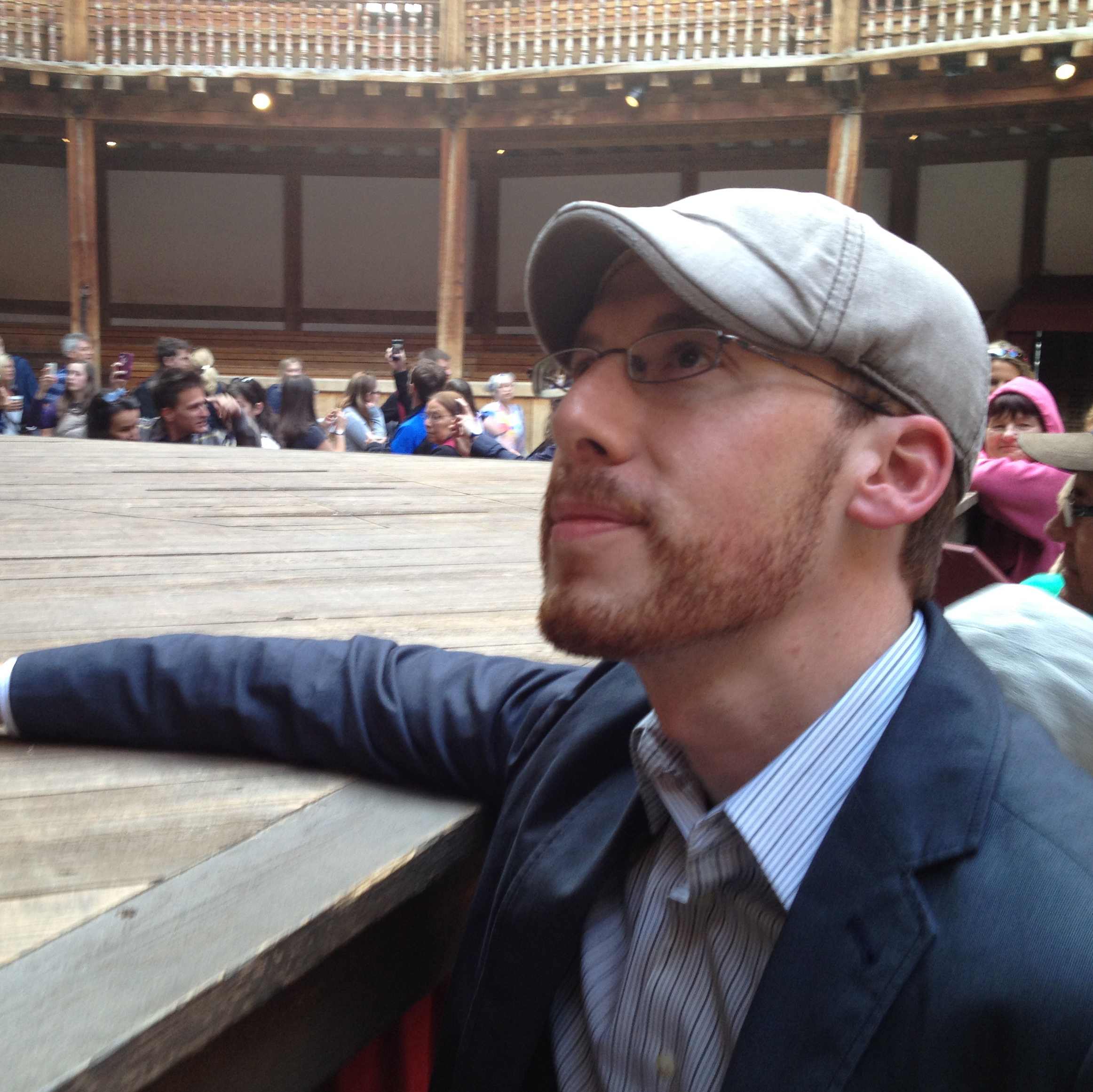
Globe Theatre, London
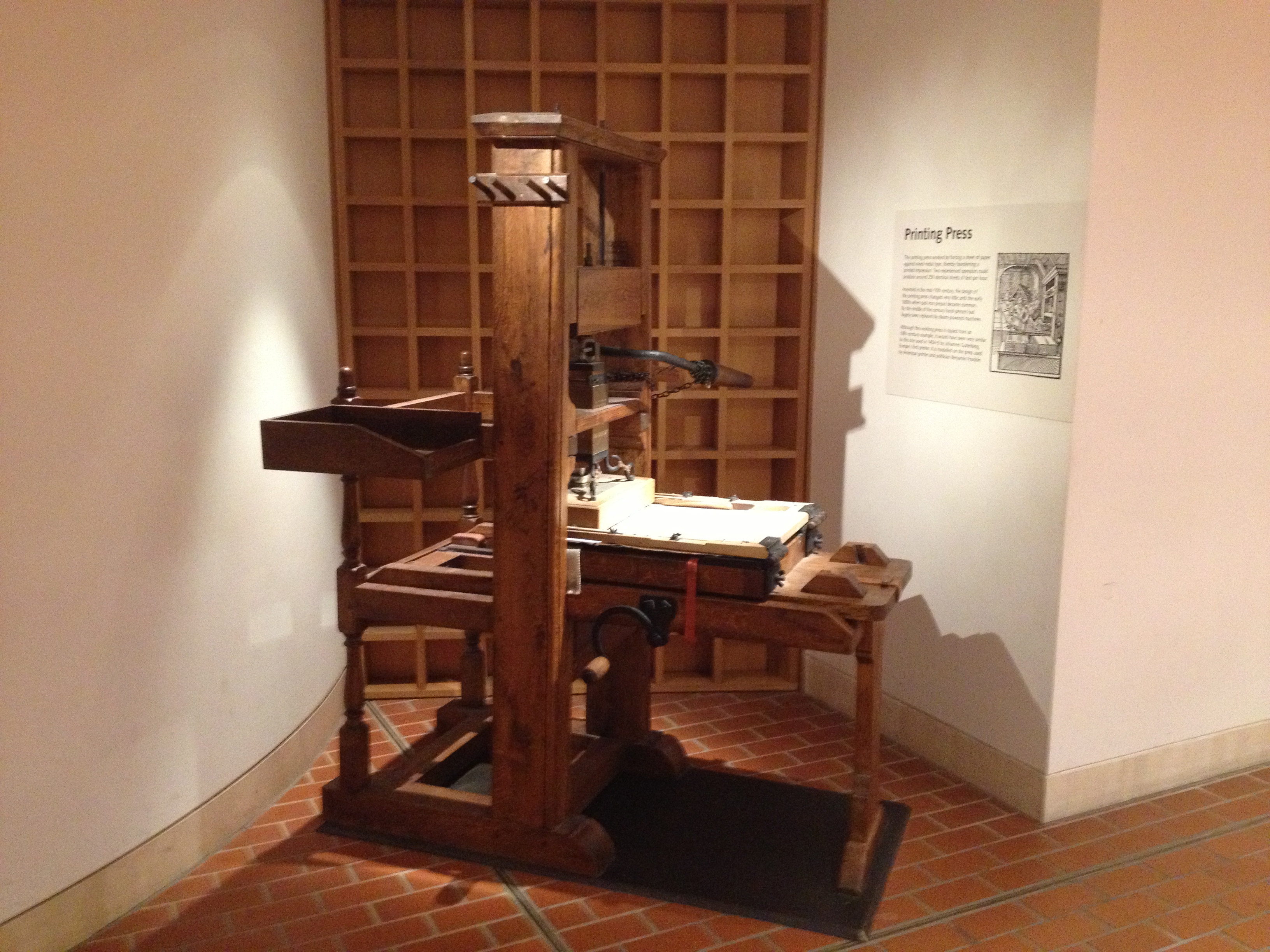
Printing Press at British Library
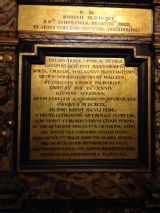
Peterhouse Cambridge-Joseph Beaumont's Grave
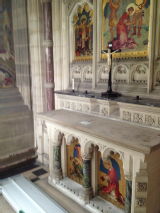
Ushaw College, Durham University
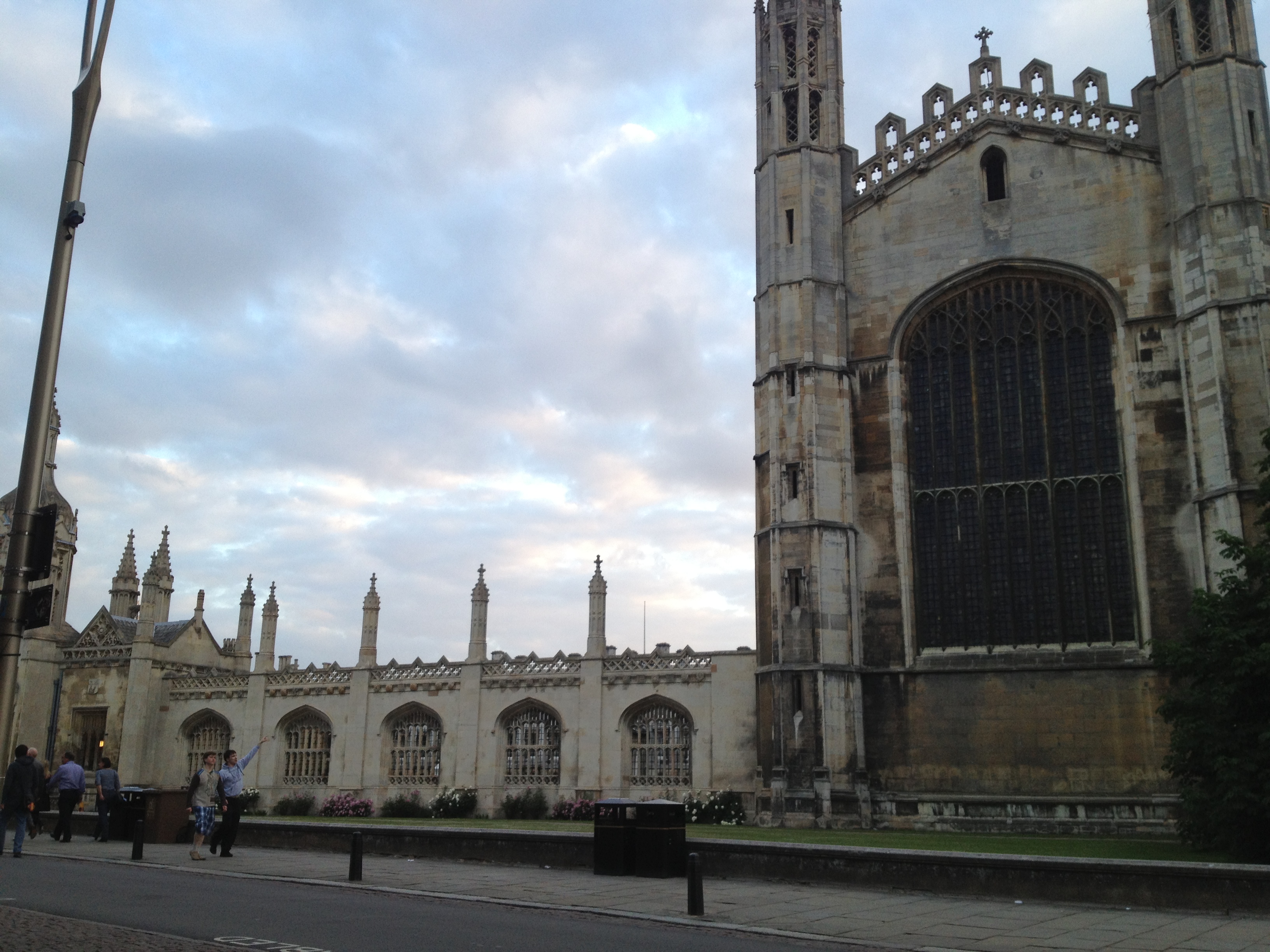
King's College Cambridge
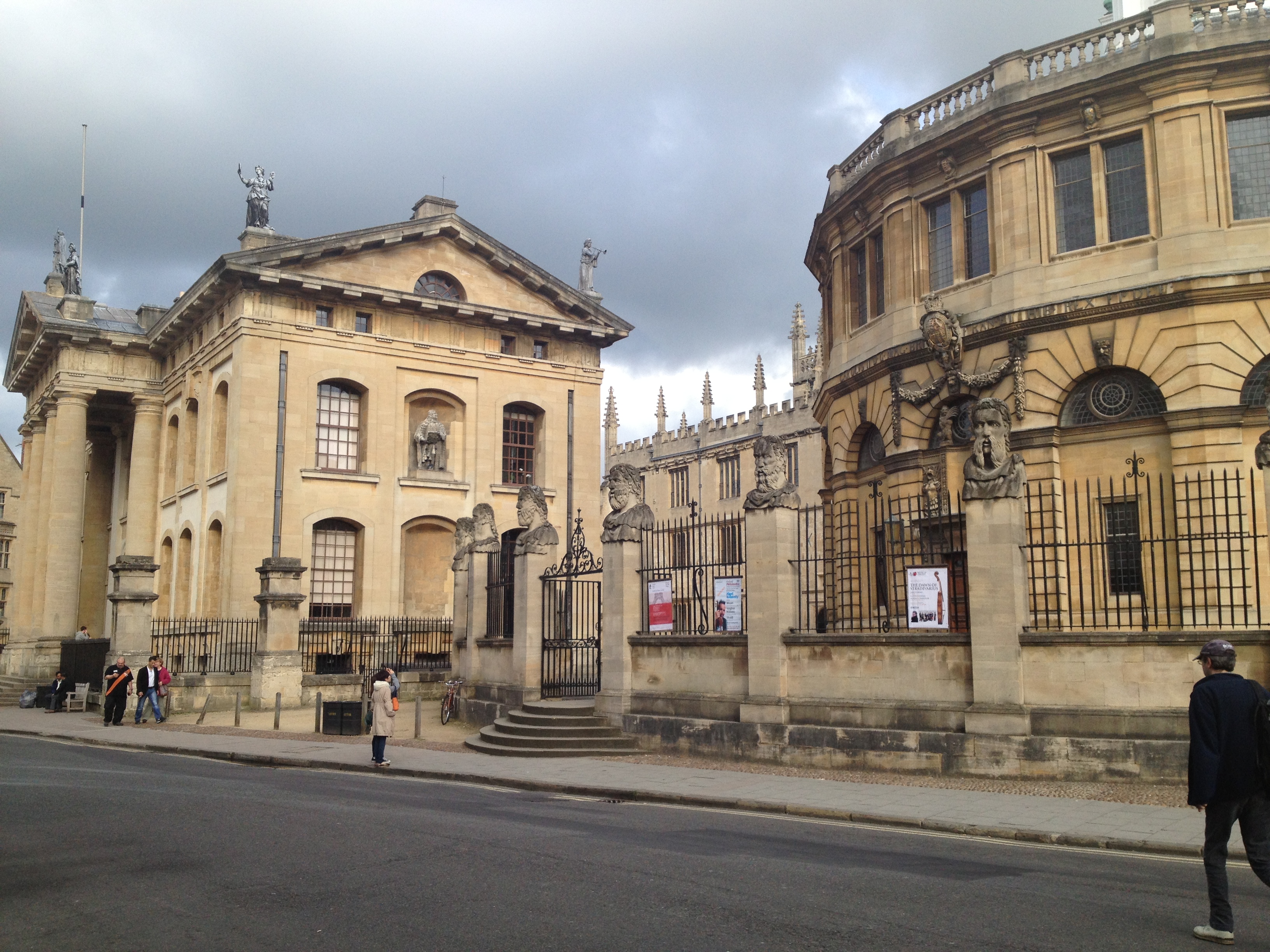
Oxford
